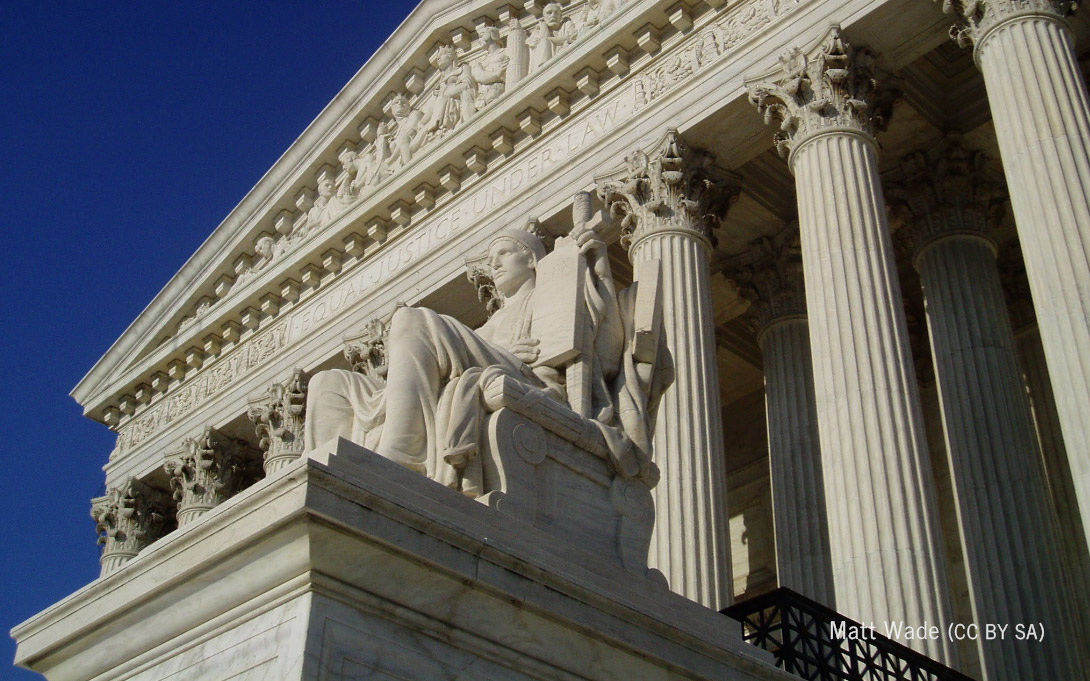
Whether you’re wrapped up for the summer or completing your final weeks of classes and coursework, you’ve likely become aware of today’s U.S. Supreme Court (SCOTUS) opinion on the case of Masterpiece Cakeshop v. Colorado Civil Rights Commission. Masterpiece comprises an array of unique facts and circumstances, and some initial news and analysis has been more confusing than helpful. Here, we’re addressing the context of this case, some basic facts and implications, and leaving you with some ways to get involved and stay involved.Here’s what DID happen in this case: SCOTUS determined that the questioning methods used by the Colorado Civil Rights Commission were not appropriate and infringed on the baker’s freedom to exercise his religion. The ruling of this case speaks specifically on this situation. SCOTUS opted to maintain a fair judicial process and determine that Phillips’ treatment during the Commission’s questioning did not result in a fair process.Here’s what DID NOT happen in this case: SCOTUS did not indicate that the baker was in the right to refuse the gay couple service. In fact, several statements throughout the opinion provided by the justices asserts that discrimination based on sexual orientation is unconstitutional. The SCOTUS ruling is not a license to discriminate based on sexual orientation.While this opinion is not a direct loss for our queer and trans+ community, it is still prudent to acknowledge that major political moments can have ripple effects that cause an uptick in discriminatory violence. There is a clear pattern where political decisions that negatively impact various identity groups embolden those who hate us most to call for greater, more public, and more abhorrent treatment of those groups. One example is the sharp increase in single-incident homicides of LGBTQ+ people following the 2016 presidential election. According to the National Coalition of Anti-Violence Program’s annual report, there were 52 reported anti-LGBTQ+ homicides in 2017 compared to 28 hate-based homicides in 2016 (which doesn’t include the 49 killings at the Pulse Nightclub massacre). Trans Lifeline, a hotline tailored to trans+ people that provides support around a variety of items such as gender navigation and mental health concerns, also indicated that calls to their volunteer-run hotlines skyrocketed following both the 2016 presidential election and again on February 23 when federal guidelines on Title IX were stripped to no longer offer protections for transgender students.Our legal protections, where they existed, are (thankfully) still intact, but the social implications and the chatter among our opponents may lead us down a pathway where even the legal protections we hold onto today get called into question. The opinion from SCOTUS makes it abundantly clear that this will not be the last time they are asked to add further clarification on where the line is between religious freedom and discriminatory practices against queer and trans+ people.In the meantime, rather than wait for a judicial decision to tell us what we already know, we must do what we always do: fight. Here’s some suggestions on where to start:
Prepare yourself with the facts of this case. Our opponents will want to view this as a win for religious freedom and interpret SCOTUS’s ruling as a free-pass to discriminate. That’s false and a misinterpretation of the ruling. Discrimination is STILL illegal.
Advocate for continued and expanded anti-discrimination protections at the collegiate, local, state, and federal level. This means ensuring your university, town, state, and our country have, in writing, the most expansive language possible restricting discrimination based on gender identity, gender expression, and sexual orientation.
Organize around interrupting the means of production and financial gain of businesses and corporations that subversively continue to discriminate despite legal protections. Businesses can’t discriminate against ANYONE if they’re unable to keep the doors open.
What’s important to remember as you’re pursuing these advocacy and activism measures is to mind your energy. Check in with each other, uplift those who have the surge of energy to strike at times you might not, and pace yourself. The (in)justice system is a complicated and often short-sided mechanism for achieving true equity but it requires changing all systems to obtain our collective liberation. So when the next fight is bigger than a multi-tiered wedding cake, we must rise to the occasion. It’s the yeast we can do.